Navigating the Future: Leading Human Intelligence into the age of Artificial Intelligence
INTRODUCTION
In the dynamic landscape of 21st century, the convergence of Artificial Intelligence and Human Intelligence has ushered in an transformative era, where the symbiotic relationship between the two is shaping the future of our global society. As we stand at the threshold of unprecedented technological advancements, the imperative to guide and harness human intelligence into the age of artificial intelligence becomes paramount. This pivotal juncture demands visionary leadership and a harmonious integration of human ingenuity with the capabilities of AI, not only address the challenges that lie ahead but also to unlock the immense potential for innovation, collaboration, and progress. Navigating the intricate interplay requires a thoughtful approach that emphasizes ethical considerations, inclusivity, and the cultivation into a collective intelligence that transcends the boundaries of man and machine. As we embark on this transformative journey: it is essential to recognize the pivotal role that thoughtful leadership plays in steering humanity towards a future where human and artificial intelligence coalesce synergistically for the betterment of society.
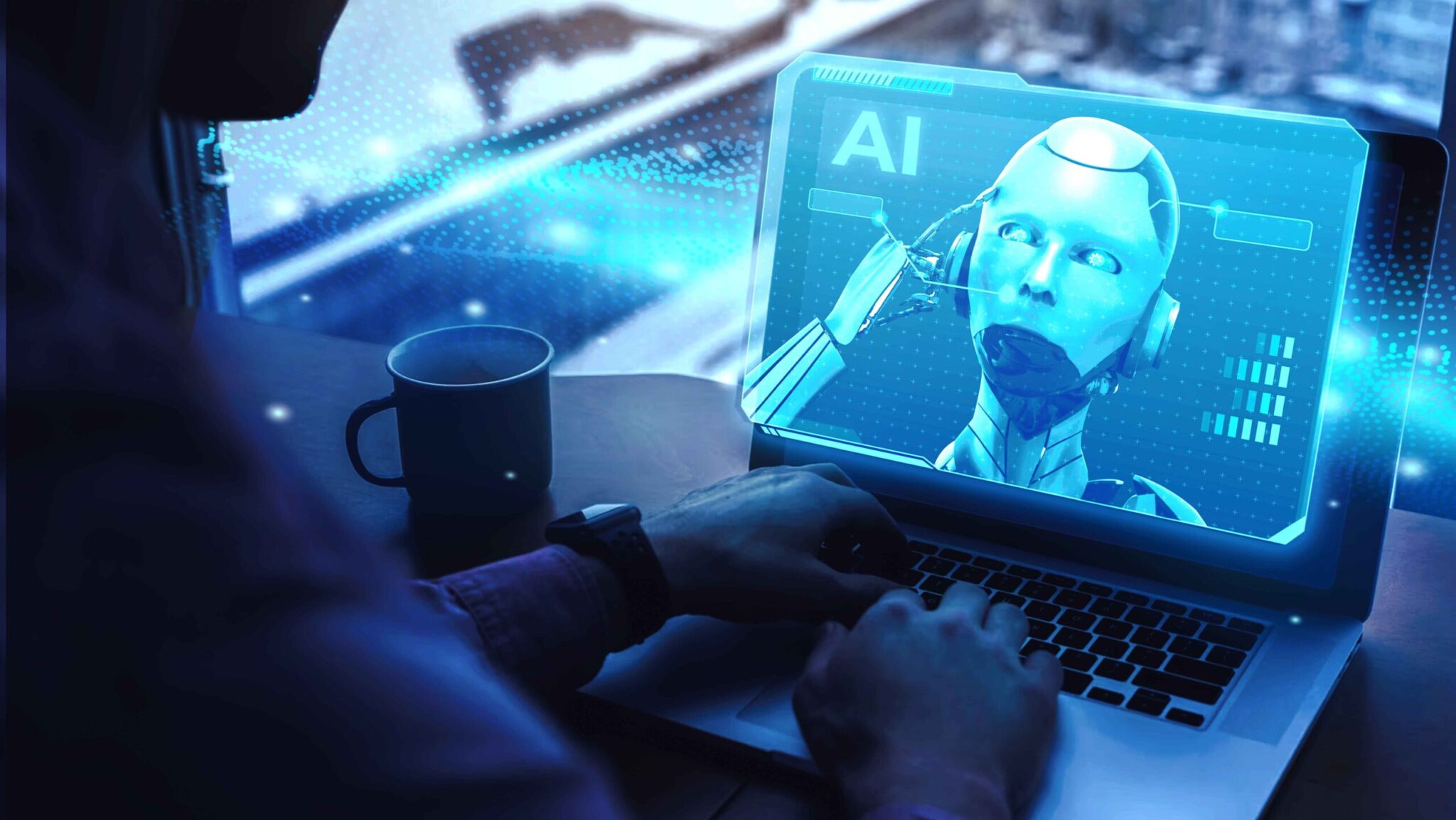
Understanding Artificial Intelligence
In the pursuit of leading human intelligence in the age of artificial intelligence a foundational aspect lies in cultivating, a deep understanding of the capabilities, limitations, and ethical considerations surroundings Artificial Intelligence. To effectively guide human intelligence alongside AI, leaders must grasp the intricate working o these advanced technologies and their advanced technologies and their potential impact on various facets of our society. A comprehensive comprehension of machine learning algorithms, neural networks, data driven decision-making processes is crucial for informed decision making. Moreover, an awareness of ethical implications, biases, and potential societal consequences associated with AI implementation essential to ensure responsible and equitable deployment. Leaders are the forefront of this transformative journey must engage in continuous learning, fostering disciplinary collaboration, and fostering a culture of adaptability to navigate the evolving landscape of artificial intelligence effectively. By embracing a nuanced understanding of AI, leaders can shape cities, practices and ethical frameworks that pave the way for a harmonious integration of human and artificial intelligence.
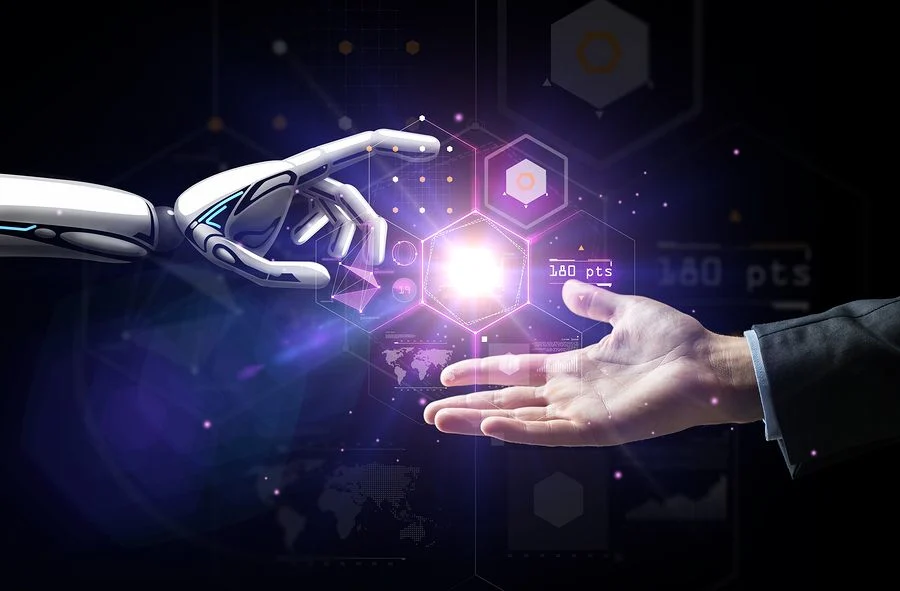
The Evolving Relationship Between Human and Artificial Intelligence
While AI holds the promise of revolutionize industries and streamlining processes, it is crucial to recognize that the integration of artificial intelligence into our daily lives does not diminish the significance of human intelligence. Instead it simplifies our capacity for innovation and problem solving, opening new possibilities for collaboration between human and machines. One key aspect of this evolving relationship is the symbiotic partnership between human creativity and AI algorithms. While AI can analyze vast datasets and identify patterns, human intuition, creativity, and emotional intelligence remains irreplaceable. In fields such as art, designs, storytelling human brings a unique perspectives and nuanced understanding that AI lacks. In the contemporary landscape of the technological evolution, the relationship between human and artificial intelligence and undergoing a profound transformation, making a pivotal juncture in the journey of leading human intelligence in the age of AI.
The dynamic interplay between human and machines is evolving beyond mere collaboration, entering a realm where mutual enhancement and coexistence defines the narratives. As AI capabilities advance, there is an increasing recognition of the need for synergy between human creativity, intuition, and emotional intelligence, and the analytical prowess and efficiency offered by machines.
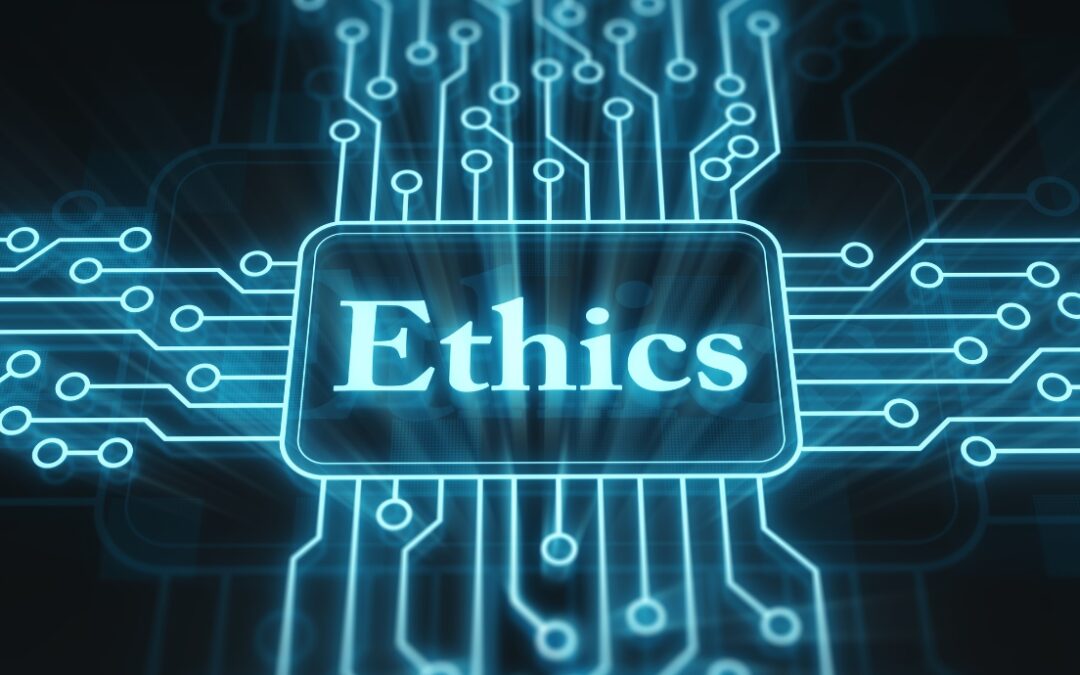
Ethical Considerations at the Age of AI
As we advance into this AI driven future, ethical considerations takes centre stage. Ensuring that AI technologies align with human values and not perpetuate biases is imperative. Ethical AI development involve addresses issues related to privacy, security, accountability, and transparency. Striking a balance between innovation and ethical responsibility is vital for fostering a sustainable and inclusive AI ecosystem. Furthermore, there is an ongoing debate about the impact of AI on employment. While automation may replace certain routine tasks, it also creates opportunities for humans to focus on more complex, creative, and socially oriented roles. A proactive approach retraining and upskilling the workforce will be essential to harness the full potential of human intelligence in the AI era. In the pursuit of leading human intelligence into the age artificial intelligence, ethical consideration emerges as a paramount concern, shaping the foundation upon which this transformative journey unfolds. The integration of AI into various facets of society necessitates a vigilant and principled approach to ensure that advancements are aligned with human values rights.
Leaders in this domain bear the responsibility of establishing ethical frameworks that guide the development, deployment, and impact of AI technologies. This involves addressing issues such as bias in algorithms, data privacy, transparency, accountability and the potential socio-economic implications of AI adoption.
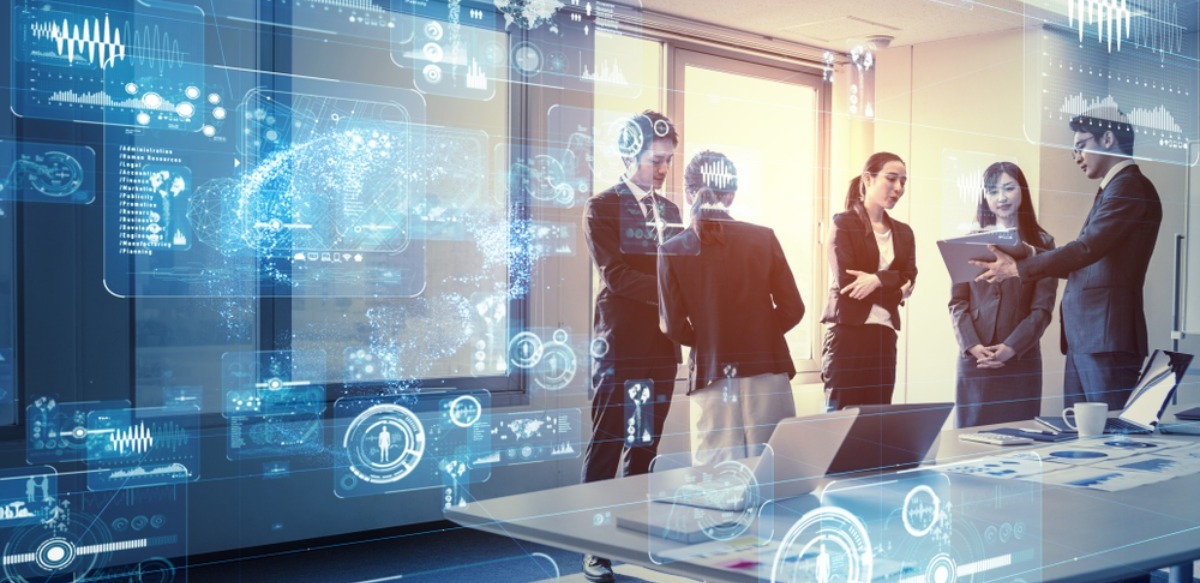
Educating the Workforce for an AI-Driven Future
As AI continues to reshape industries, education plays a pivotal role in preparing the workforce for the evolving job market. Emphasizing critical thinking, adaptability, and interdisciplinary skills becomes essential. Integrating AI education into traditional curricula ensures that future generations are equipped to leverage AI tools responsibly and ethically. Government initiatives, industry partnerships, and educational institutions must collaborate to develop comprehensive training programs that bridge the gap between human intelligence and AI capabilities. This approach will empower individuals to navigate the complexities of the AI landscape and contribute meaningfully to the development and applications of AI technologies. A fundamental imperative lies in the proactive education and upskilling of the workforce to navigate the nuances of an AI-driven future. As AI technologies increasingly integrated into various industries, leaders must prioritize initiatives that must empower individuals with the skills and knowledge essential for collaboration with intelligent machines.
This involves cultivating a culture of continuous learning, emphasizing proficiency, in areas such as data literacy, critical thinking, and problem solving qualities that complement the analytical capabilities of AI. Leaders play a pivotal role in fostering partnership between educational institutions, industry stakeholders, and government bodies to design curricula align with the demands of the evolving job market.
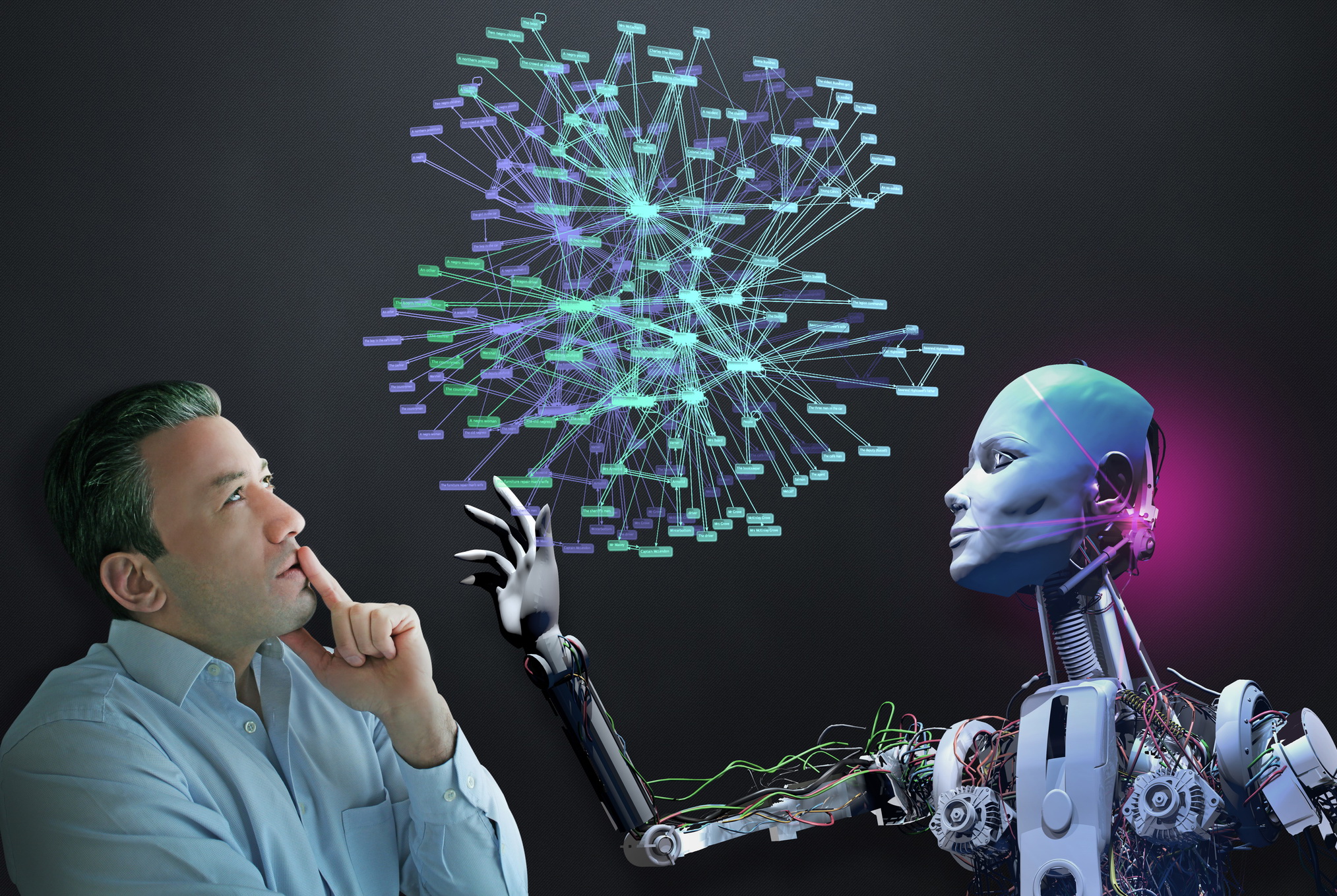
Fostering innovation through Collaboration
The Future of AI is not a battle between humans and machines but rather a collaborative effort to harness the strength of both. Innovations in AI are most impactful when they stem for collaborative endeavors that bring together diverse perspectives, skill sets, and expertise. Cross disciplinary collaboration between technologists, ethicists, policymakers, and creative thinkers that lead to the development of AI system that are not only powerful but also aligned with human values. The Fusion of Human and Artificial Intelligence capabilities presents a unique opportunity for groundbreaking advancements, and leaders must champions collaborative efforts to harness this potential. By cultivating partnership between industry, academia, and research institutions, leaders can create ecosystem that encourage the cross pollination of ideas, expertise and resources. Open collaboration allows for the exploration of novel solution the complex challenges, leveraging the collective intelligence of diverse perspectives.
Leaders in this context must promote a cultures that values collaboration, breaking down silos and encouraging interdisciplinary exchanges. By fostering innovation through collaborative endeavors leaders are not accelerates technological progress but also cultivate an environment where human and machine intelligence converge synergistically, driving transformative change an shaping a future where innovation is a collective endeavor.



